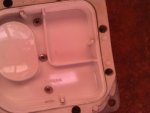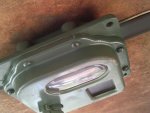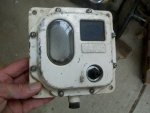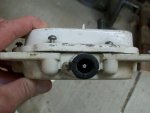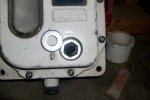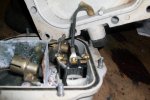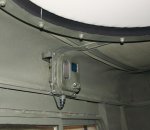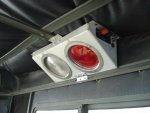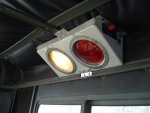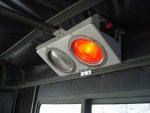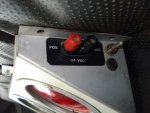I just installed my dome light and want to put an inline fuse in. What size fuse should I use?
Would 10 amp work or does it have to be more amps because of the 24 volt system. I'm
pretty useless when it comes to wiring. Any help would be appreciated!
Thank you in advance
a 24 volt system uses 1/2 the amperage of a 12 volt system. A typical 12 volt dome light would be hard pressed to use more than maybe 2 amps. Assuming adequate sized wire a 5 amp fuse would be more than enough. Keeling in mind that a 24v system uses 1/2 the amperage, a 2 amp fuse should be plenty but again, the wiring can more than likely handle 5 amps forever w/o any problem.
Of course you want the fuse physically located as close to the power souse as possible.
Here is a link to a chart that I posted before in a different thread to help you determine the proper wire size to use.
Wiring Size Guide To help explain the chart; If you have a 1 amp load that is up to 106 feet away from the power source you can use 14 gauge wire.
Here is another tip; If you can find out the wattage of the bulb (or motor - whatever it actually is, you can call it, "The load") you divide the wattage of the load by the voltage to arrive at the amperage used by that load.
Example: 55 watts divided by 12 volts = 4.5833 Always round UP so here you would use 5 amps as your base number. (55 watts is WAY to much for a dome light... 55 watts is the standard for a typical stock headlight low beam). Just a WAG but I can't see a dome light using more than a 5 watt bulb and even that is probably way more than any normal dome light. It is probably more like a 2 or 3 watt bulb.
Add at least 25% (50% is even better!) to that answer (for safety) and that is the number of amps you use to look up on the chart to find the size of wire you should use. Add about 10% to the answer to find the fuse to use, (If you added 50% to determine the wire size you can add 15% now for the fuse).
This will give you 25% (Or 50%) more wire size than you "Need" and give you enough fuse so that it does not blow every time you use the item (Obviously if the item uses exactly what the fuse is rated for your going to have a very fragile circuit. You want just slightly more fuse than you have load, (Assuming of course you have properly sized your wiring).
Keys to remember:
*Always use a larger wire than specified for increased safety. (In wiring, bigger is always better!)
*Never use a larger fuse than specified. (With fuses proper sizing is mandatory. To small and they constantly blow. To large and your going to burn up the vehicle/house/whatever)
*Always use proper connection methods and protect them from weather/dirt/corrosion
*Always use a few connections as possible. It is always better to replace a short wire with a longer one than to simply splice on another piece. The higher the amperage the more important this is.
*Always make the wire from the power supply to the fuse as short as possible.
*Always round UP when doing electrical math to determine loads and wire size.
Hope this helps.


